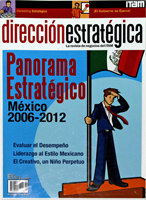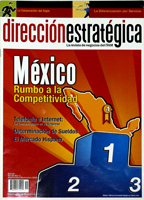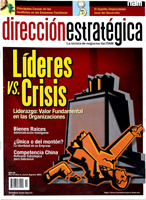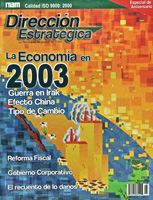 By: Rogerio Domenge and Imanol Belausteguigoitia
By: Rogerio Domenge and Imanol Belausteguigoitia
It is widely known that in Mexico and elsewhere in Latin America, small and mid-sized businesses play a significant role in economic activity (Kantis & Ishida, 2002) and social dynamics. According to the National Institute of Statistics and Geography (INEGI, 2007), in Mexico 95.5 percent of manufacturing, retailing and service organizations are micro-sized businesses, while 3.5 and 0.8 percent are small and mid-sized companies, respectively. These employ 30.8 percent of all the workers in the country. Just 0.2 percent of the companies are large firms. At the same time, it is estimated that nine out of every ten organizations in Mexico are family owned, and only one in three of them is passed down to the next generation (Belausteguigoitia, 2004).
 By: Sylvia Meljem, Yanira Petrides y Gabriela Soní
By: Sylvia Meljem, Yanira Petrides y Gabriela Soní































Strategic Guide for the Implementation of Sustainable Actions in the Workplace
By: Antonio Lloret
For companies to maintain a level of competitiveness that allows them to subsist, sustainability must be an integral part of their business strategy. These two aspects -competitiveness and sustainability- are key to success, hence the importance of using natural, economic and social resources efficiently and being able to adapt to consumer demands for sustainable goods and services. But instead of viewing these as limitations, companies should see these as strategic opportunities to create value.
Competitiveness, understood as the efficient allocation of resources (capital, work, technology) and the proper use of natural and social capital, is a prerequisite to the implementation of sustainable actions that enable a company to generate internal and external economic value, while the term “sustainability” presupposes rational use of natural, social and economic resources by companies. Thus, sustainability is about meeting the needs of the present generation without sacrificing the capacity of future generations to meet theirs.
(read more…)